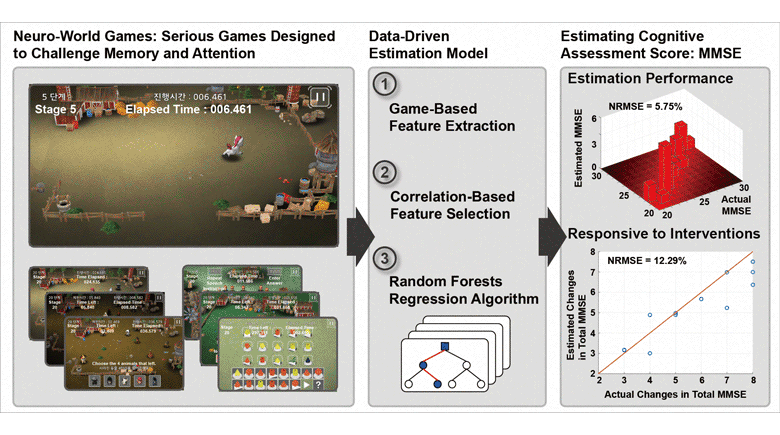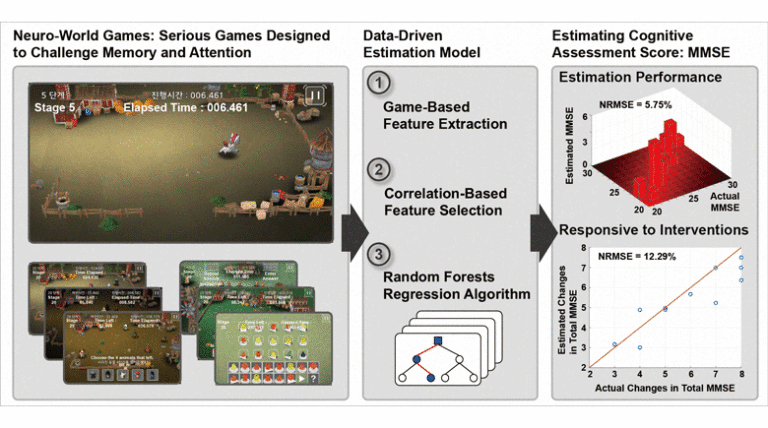
The number of individuals with permanent cognitive disabilities is increasing worldwide due to aging societies. It is important to longitudinally monitor changes in the cognitive functional and impairment levels of these individuals in order to evaluate the effectiveness of the prescribed intervention and enable individually-tailored therapeutic programs. In practice, different aspects of individuals’ cognition are assessed by clinically validated tools, such as the Mini Mental State Examination (MMSE). However, such a tool needs to be administered by trained clinical staff to achieve accuracy and reliability. This constraint serves as a major barrier that makes the frequent and longitudinal assessment difficult.
To address such a challenge, we propose a game-based approach that enables individuals to self-administer the assessment and the longitudinal tracking of their cognitive functional and impairment levels in the MMSE. Scientific evidence suggests that different aspects of human cognition can be explained by a smaller number of cognitive processes, such as memory and attention. Based upon this understanding, we introduce Neuro-World, a set of six mobile games, that has been developed to challenge visuospatial short-term memory and selective attention. Furthermore, we introduce a machine learning based approach that translates individuals’ performance in Neuro-World games into the MMSE and its category scores, which highlights translational impact of our approach in real-world settings.
The performance of our approach has been validated using the game-specific performance data of 12 chronic stage stroke survivors and their corresponding MMSE scores. The results demonstrate that the proposed approach can accurately estimate patients’ cognitive functional and impairment levels and their longitudinal changes in the MMSE scores. The proposed approach, introduced in this study, offers new opportunities for accurate, longitudinal assessment of cognitive function via mobile games.

